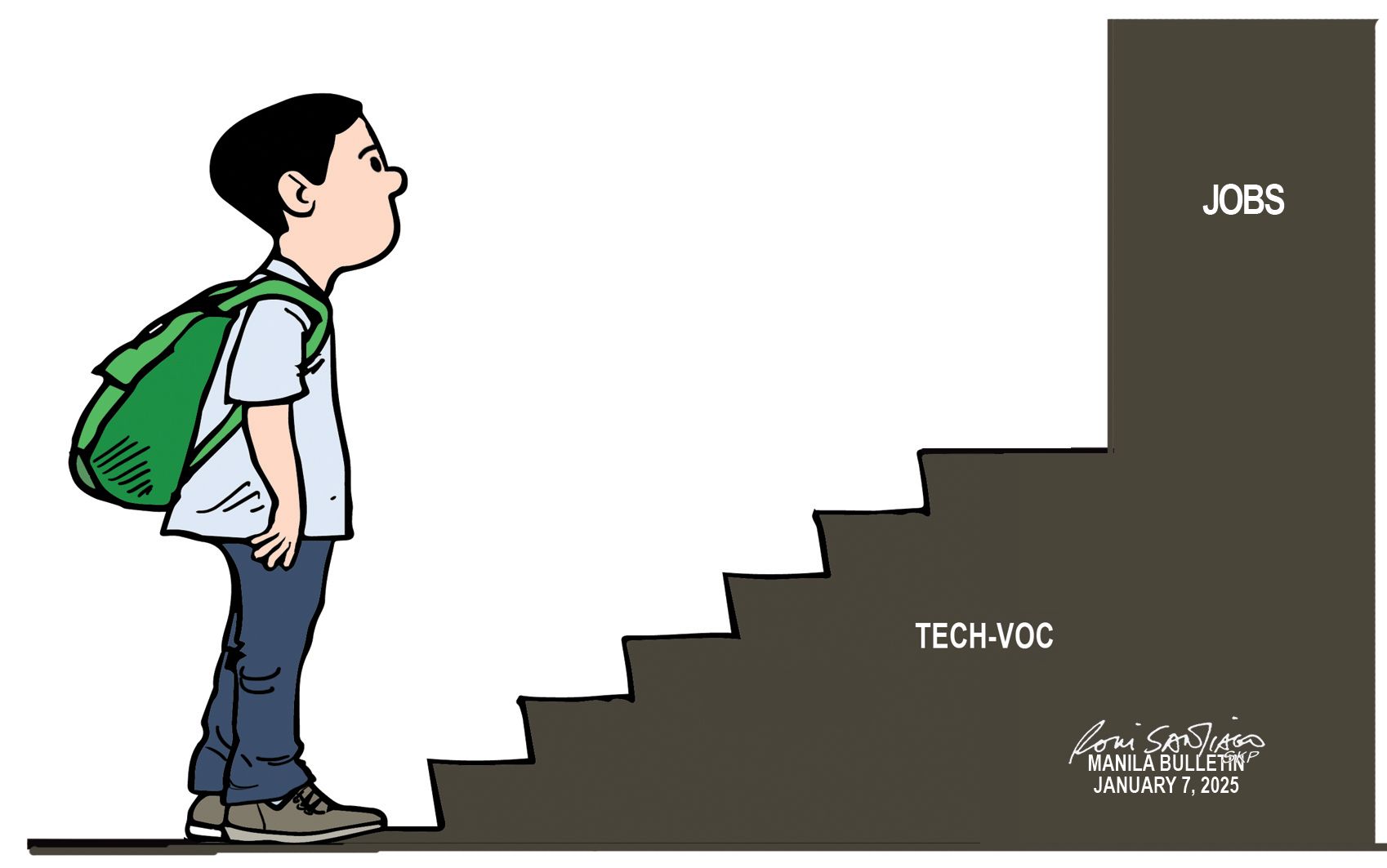Boosting tech-voc education to enhance high school graduates' employability

In recent years, the Philippine government has made strides in improving the employability of senior high school graduates by promoting the technical-vocational (tech-voc) track, increasing access to Technical Education and Skills Development Authority (TESDA) certifications, and implementing parallel initiatives. These efforts aim to address a long-standing gap in the education system: the mismatch between skills acquired by students and the demands of the labor market. While progress is evident, more must be done to ensure that the country’s youth are equipped with the skills necessary for gainful employment and long-term economic growth.
The tech-voc track in senior high school provides students with practical skills in fields such as agriculture, information technology, construction, and hospitality, allowing them to pursue employment or entrepreneurship immediately after graduation. By embedding workplace competencies in the curriculum, the tech-voc track serves as a direct response to industries’ needs for skilled workers.
TESDA plays a pivotal role in enhancing employability through its certification programs. These certifications validate the skills of graduates, making them more competitive in both local and global job markets. TESDA’s partnerships with industries and educational institutions have been instrumental in aligning training programs with real-world demands. Furthermore, initiatives like the Special Training for Employment Program (STEP) and the Training for Work Scholarship Program (TWSP) have enabled thousands of Filipinos to access training that leads to employment.
The appointment of former Rep. Jose Francisco “Kiko” Benitez as director-general has boosted TESDA’s capacity and potentials for advancing tech-voc as a main catalyst and driver for the country’s economic growth.
Secretary Benitez’s eight-point TESDA best plan for the agency — which includes: Access to TVET; Behavior and Mindset Change; Competency Standards and Training Regulations for New and Higher-Level Qualifications; Demand-Driven and Data-Driven TVET; Employment Outcomes; Flexible Learning, and Facilities; Global Competitiveness, and Good Housekeeping; and, Harmonization with SHS Curriculum, Ladderization with Higher Ladderization with Higher Education, and Lifelong Learning Pathways — when fully implemented, will bring about significant strides in enhancing the Filipinos’ skill-sets in the highly competitive milieu engendered by the Fourth Industrial Revolution.
Despite these initiatives, significant challenges remain. The employability of senior high school graduates is still hampered by limited access to resources, uneven implementation of programs across regions, and a persistent stigma attached to tech-voc education. Many students and parents continue to view the academic track as the more prestigious option, overlooking the opportunities that tech-voc education can offer. Moreover, some schools offering the tech-voc track lack the necessary facilities, equipment, and trained instructors, resulting in uneven quality of education and training.
To accelerate progress in this area, the government must address these gaps through a multi-pronged approach. First, strengthen public-private partnerships, focusing on enhanced collaboration among TESDA, schools, and private companies to create a seamless pathway from education to employment. Second, expand investment in upgrading tech-voc facilities and equipping schools with modern tools and technologies. Third, enable TESDA to reach underserved regions, particularly rural areas, provide mobile training labs, online certification programs; and increase funding for scholarships to make skills training more accessible.
As the labor market evolves, the challenge is to ensure that education keeps pace with change. The government, in partnership with industries and communities, must intensify efforts to make the tech-voc track a viable and attractive option for students. Only then can we fully realize the potential of our youth as drivers of progress.